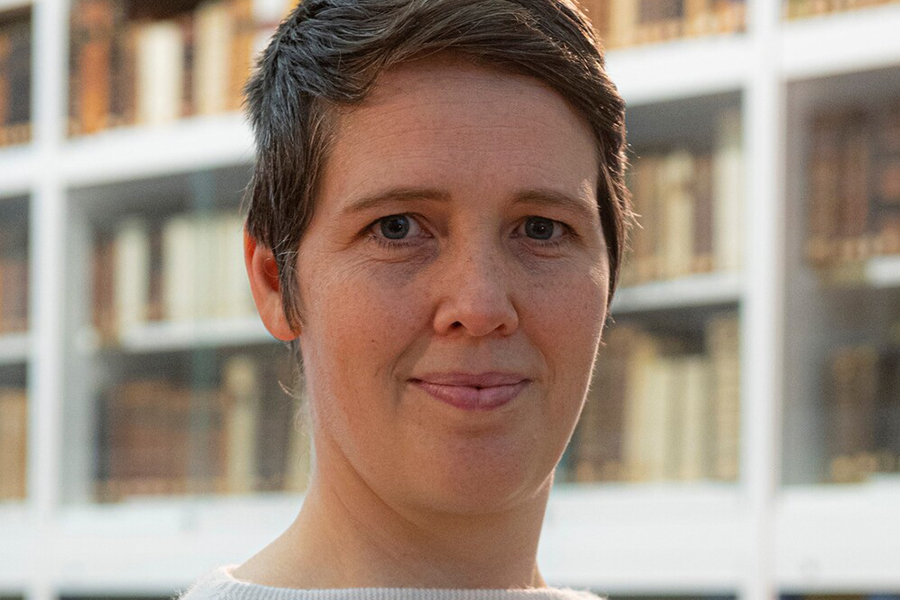Lower Saxony Science Award for Viola Priesemann
On November 17, 2021, the Ministry of Science and Culture of Lower Saxony awarded the researcher of the Max Planck Institute for Dynamics and Self-Organization (MPIDS) in Göttingen the prestigious Lower Saxony Science Award in the category "Scientist in an early career phase".

Viola Priesemann © MPIDS / Peter Heller
/MPIDS/ The jury of the Scientific Commission of Lower Saxony was deeply impressed by the professional achievements of Viola Priesemann in the field of theoretical neuroscience, as well as by the flexibility to adapt her research activities to the Covid 19 pandemic at short notice.
In recent months, Viola Priesemann has become known in particular for her modeling work on the COVID-19 pandemic. The physicist has been an integral part of the Göttingen Campus since 2013, where she develops mathematical models to study self-organization and information processing in complex and neural systems. One of her most important research results is a theory that shows how neurons form stable and, as it were, effective and dynamic networks to transmit signals and process information. Since the mathematical description of such networking and propagation of signals is very similar to the propagation of a virus, she decided to apply her expertise to the pandemic in early 2020.
Since then, Viola Priesemann has become a highly sought-after expert, advising the German government, among others, and regularly appearing in the daily press, talk shows and radio programs.
Together for basic research
“I am very honored by this award and pleased to be able to contribute to current science through my research,” Priesemann said happily. “Our work is important to reveal how living neurons learn and process information independently. If we understand these basics, we will also be able to develop more energy-efficient artificial neural networks, and thereby also mitigate the climate crisis a bit,” she explains. At the same time, she says, the COVID-19 pandemic teaches us that basic research also makes for excellent crisis preparation. “We don’t know exactly what the future crises will bring in terms of challenges, but basic research will certainly again prove extremely helpful in the crisis situation,” Priesemann says.
Since 2017, Priesemann is head of the research group “Theory of Neural Systems” at the Max Planck Institute for Dynamics and Self-Organization in Göttingen and the Institute for Dynamics of Complex Systems at Göttingen University. She is a member of the Cluster of Excellence “Multiscale Bioimaging: from molecular machines to networks of excitable cells (MBExC)”. In addition, she leads a project within the Collaborative Research Center “Quantitative Synaptology” and in the Priority Program “Evolutionary Optimization of Neural Systems”.
Priesemann received the award on November 17, 2021 in Hannover .The award is endowed with 20,000 euros.




